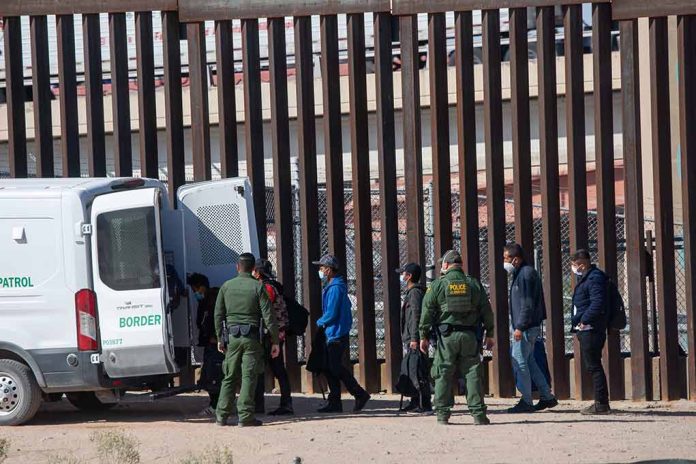
The tightening of Canadian visa regulations has become the latest move in response to alarming allegations of illegal migration schemes from India.
At a Glance
- Indian authorities are probing possible human trafficking links between Canadian colleges and entities in Mumbai.
- The tragic death of Jagdish Baldevbhai Patel’s family at the border spotlighted the risks of illegal crossings.
- Notable figures, Steve Shand and Harshkumar Patel, have been charged for smuggling unauthorized individuals into the U.S.
- The “Dingucha case” investigation spans multiple cities and involves comprehensive searches and cooperation with Canadian authorities.
- Over 260 educational institutions allegedly play a role in transporting Indians using Canadian study visas.
International Relations on Alert
Indian law enforcement is delving into alleged connections between Canadian colleges and Mumbai-based groups facilitating the transport of students across the Canada-U.S. border. The investigation is fueled by serious incidents, including the death of the Patel family, highlighting the gravity of illegal student movement. Involved parties like Steve Shand and Harshkumar Patel face legal actions for their participation in these unlawful crossings.
These troubling events have highlighted a network stretching across Indian cities such as Mumbai, Nagpur, Gandhinagar, and Vadodara. The coordinated effort of Indian, Canadian, and New York authorities seeks to dismantle a trafficking circuit abusing Canadian student visa processes for illegal entry into the United States.
Investigation by India alleges dozens of Canadian colleges& universities might be linked to scheme illegally ferrying students across Canada-U.S. border reveals the "staggering" extent to which holes in immigration system can be exploited, some experts say https://t.co/IP48xkL8yL
— Michael Bociurkiw (@WorldAffairsPro) December 28, 2024
Allegations on the Table
Concerns over the exploitation of the Canadian immigration system continue to mount as Indian officials allege that some Canadian colleges were used as vehicles for illegal immigration through falsified student visas. A significant number of institutions, around 112 colleges tied with one entity and over 150 with another, are under scrutiny. However, these allegations have yet to be proven in a court of law.
“If the allegations are true, it reveals shocking gaps in our integrity protocols.… This is deeply, deeply concerning and problematic,” said Raj Sharma, a Calgary-based immigration lawyer.
The Enforcement Directorate in India expresses conviction about the involvement of large numbers of students, estimating referrals of about 25,000 students annually. Such figures point to a profound degree of infiltration into Canadian educational setups, obscuring the path towards legitimate education with ulterior motives.
India alleges widespread trafficking of international students through Canada to U.S. (Canada) https://t.co/mTYwTB12IX
— Castanet (@CastanetNews) December 27, 2024
Governmental and Diplomatic Reactions
In response, the Canadian government has embarked on addressing these student visa abuses, bolstered by calls within the jurisdiction for more stringent oversight. This situation not only reflects flaws in visa monitoring but also signifies broader diplomatic tensions among Canada, the U.S., and India. As investigations advance, diplomatic exchanges seek stability and resolution, highlighting shared concerns over transnational criminal activities targeting immigration systems.
“I’m not surprised at all that we see people both in Canada, the United States and overseas that have coordinated to take advantage of our wide-open system,” said Kelly Sundberg, a professor of criminology at Mount Royal University.
The ongoing effort involves strengthening Canadian border control, increasing verification processes, and contemplating further collaborations across international jurisdictions. The narrative continues to unfold as authorities work to root out networks abusing the student visa program, ensuring the integrity of international education and migration systems.


